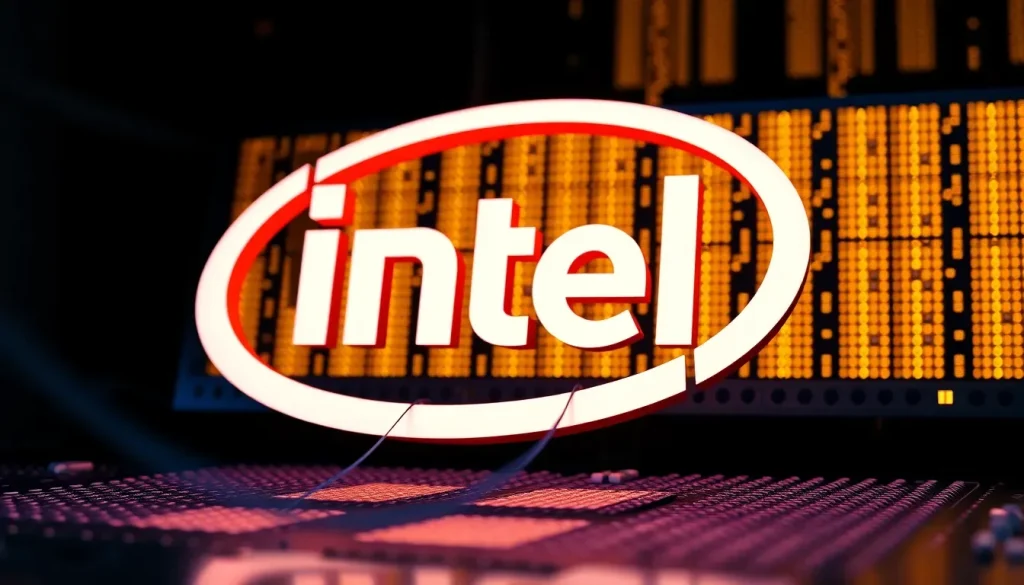Intel as a safety net for NVIDIA, AMD, and Apple if TSMC fails

The semiconductor industry is at the forefront of technological advancement, driven by a growing demand for chips across various sectors. With the rapid expansion of artificial intelligence and the proliferation of smart devices, the need for high-performance chips has surged to unprecedented levels. Despite being overshadowed in recent years, Intel is poised to become a crucial backup for major companies like Apple, NVIDIA, and AMD, especially if TSMC faces any disruptions in its supply chain.
As the leading company in semiconductor manufacturing, TSMC has significantly contributed to Taiwan's status as a global powerhouse in technology. Its advanced manufacturing processes and cutting-edge nodes are preferred by many of the world's largest tech companies. However, with recent geopolitical shifts and supply chain vulnerabilities, the conversation is shifting towards Intel's potential role as a reliable alternative.
- Intel's emerging role as a safety net for leading tech companies
- The implications of TSMC's dominance in the semiconductor market
- Current challenges facing Intel in attracting clients
- The future of semiconductor manufacturing: Diversification and resilience
- Conclusion: A pivotal moment for Intel and the semiconductor industry
Intel's emerging role as a safety net for leading tech companies
TSMC's dominance in semiconductor production is primarily due to its cutting-edge manufacturing capabilities. With nodes operating at smaller nanometer scales, TSMC offers higher density, performance, and efficiency compared to competitors like Samsung and Intel. Although Samsung has at times introduced smaller nodes, its performance metrics have not been on par with TSMC. On the other hand, Intel, through its Intel Foundry Services (IFS), is establishing itself as a player in the market, manufacturing its own chips but struggling to attract significant clientele.
However, recent trends suggest that Intel may soon become a viable option for companies that traditionally rely on TSMC. Several industry analysts believe that as demand continues to grow, companies such as AMD, NVIDIA, and Qualcomm may turn to Intel as a backup supplier. This shift is fueled by concerns over TSMC's capacity to meet escalating orders, particularly in light of ongoing geopolitical tensions and supply chain challenges.
- Increased demand from the AI sector.
- Global supply chain disruptions affecting production.
- Geopolitical factors leading to potential shortages.
The recent policies implemented by the U.S. government, including tariffs and incentives for domestic manufacturing, have prompted TSMC to invest in production facilities within the United States. This move is expected to optimize supply chains and reduce costs, but it will also mean that TSMC's production lines will be operating at full capacity, potentially leading to longer wait times for orders or outright rejections of new ones.
The implications of TSMC's dominance in the semiconductor market
TSMC's unique position in the semiconductor landscape means that it has become indispensable for tech giants. Its advanced nodes allow for the production of powerful processors and graphics units that meet the increasing demands of modern applications. As a result, many companies find themselves in a precarious situation, having to rely on a single source for their semiconductor needs.
- Dependence on TSMC creates vulnerability in supply chains.
- A single point of failure can disrupt multiple industries.
- Potential for innovation stagnation if alternatives are not explored.
This reliance on TSMC raises concerns about the sustainability of future technological advancements. If TSMC becomes overwhelmed with orders, the ripple effect could impact numerous sectors, from consumer electronics to automotive industries. This is where Intel's potential resurgence could play a crucial role in providing an alternative to ensure that the flow of semiconductors continues unabated.
Current challenges facing Intel in attracting clients
Despite the promising outlook, Intel faces significant challenges in winning over clients. Historically, the company's efforts to compete with TSMC have not yielded substantial results. According to industry analysts, Intel's current market position is precarious, primarily due to the overwhelming preference for TSMC among leading technology firms.
In normal circumstances, Intel would struggle to attract major clients. However, the current landscape offers a unique window of opportunity:
- TSMC may soon be overburdened with orders.
- Geopolitical tensions create uncertainties in international trade.
- Intel could leverage its production capabilities to fill gaps.
Analysts like Ben Bajarin speculate that as TSMC's order backlog increases, companies may consider Intel a viable alternative. This situation could be a turning point for Intel, transforming its current narrative from one of struggle to a potential supplier of choice for tech giants looking to diversify their supply chains.
The future of semiconductor manufacturing: Diversification and resilience
As the semiconductor industry evolves, the need for diversification in supply chains has never been more critical. Companies are beginning to recognize the risks associated with relying solely on a single supplier. This realization encourages them to explore alternative sources, including domestic manufacturers like Intel.
- Diversifying suppliers mitigates risks associated with supply chain disruptions.
- Investing in local manufacturing can bolster national security and economic stability.
- Encouraging competition can lead to better pricing and innovation.
Intel's potential role as a backup supplier could provide stability in an industry that is increasingly susceptible to disruptions. By positioning itself as a reliable alternative, Intel could not only enhance its market presence but also contribute to a more resilient global semiconductor ecosystem.
Conclusion: A pivotal moment for Intel and the semiconductor industry
In summary, the evolving landscape of the semiconductor industry presents both challenges and opportunities. As TSMC continues to dominate the market, Intel's potential as a safety net for major technology companies could redefine its position in the industry. With strategic investments and a commitment to innovation, Intel may find itself not just surviving, but thriving in a competitive market.




Leave a Reply